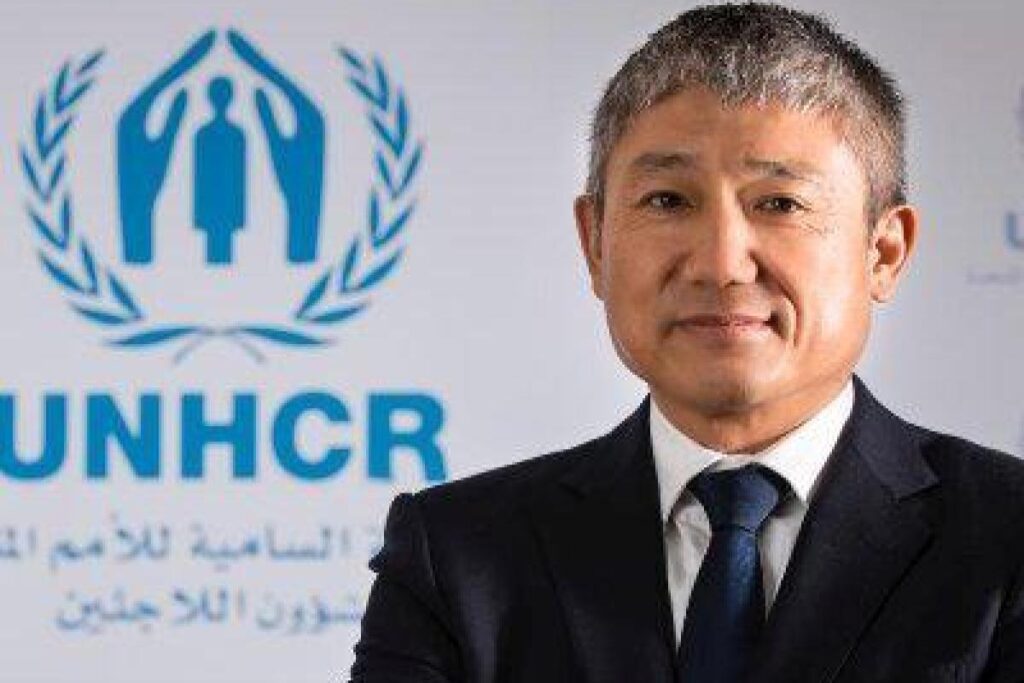A growing humanitarian crisis is unfolding in Burundi, where the relentless influx of refugees from the conflict-ravaged eastern Democratic Republic of the Congo (DRC) has overwhelmed aid services and exposed thousands to worsening conditions.
Driven by violence and insecurity, more than 71,000 Congolese refugees have crossed into Burundi since January, according to data from the United Nations High Commissioner for Refugees (UNHCR). The agency’s Director for Emergencies, Ayaki Ito, warned that the refugee situation has reached a critical point. “We’re pushed to our limits.”
Among the harrowing accounts of escape is that of a mother who risked the treacherous crossing of the Rusizi River with her three young children. The river, which separates DRC and Burundi, is known to be infested with crocodiles and hippos.
“I saw this plastic sheeting ball — it’s one mother and three small children — she put her belongings and wrapped it with a plastic sheet, to make it float… It’s a very perilous journey.”
Director for Emergencies, Ayaki Ito

Living Conditions At Breaking Point
Many refugees have been relocated to the Musenyi refugee site, located about five hours from the DRC border. Though initially built to host 3,000 people, Musenyi is now home to more than 16,000, creating overcrowded and unsanitary conditions.
Food supplies are dwindling at a dangerous rate. “Food rations are already cut to half of what they’re supposed to be,” Ito explained, warning that even those limited rations will be exhausted by the end of June if no new funding is secured.
Heavy rains have only worsened the plight of the refugees. Makeshift emergency tents placed on lowland farmland have been swamped by flooding, increasing the risk of waterborne diseases.
Aid workers on the ground are bracing for potential outbreaks in the absence of adequate sanitation infrastructure. “Schools, clinics, basic sanitation systems are either non-existent or overwhelmed,” said Ito, adding that nearly 11,000 women and girls are now without dignity kits for personal hygiene due to supply shortages.
The humanitarian strain extends beyond food and shelter. UNHCR has faced drastic cuts to its budget, leading to the suspension of family tracing efforts — a vital lifeline for children separated from their families in the chaos of displacement. The absence of child- and women-friendly spaces has further stripped away the basic protections usually offered in such emergency settings.
The conflict has caused many refugees to flee back and forth across the border in search of safety. “Nearly half of last week’s registered 700 arriving refugees have been previously registered in Burundi,” said Ito, underscoring the revolving-door nature of this humanitarian emergency. Congolese refugees, he stressed, “are among the most vulnerable in the world.”
Sexual violence is also on the rise. The UNHCR reports a staggering 60 percent increase in cases, most of them rape incidents within the DRC. This surge in gender-based violence adds another layer of trauma for women and girls already suffering from the loss of homes, families, and stability.
Ito noted the tremendous pressure on the limited staff and facilities available.
“This balancing act is becoming increasingly impossible, with teams on the ground running a full-scale emergency response, responding to the needs of existing refugees in the country and preparing for future arrivals while also facing pressure to reduce their operations because of funding shortages.”
Director for Emergencies, Ayaki Ito
As global attention remains limited and resources dwindle, humanitarian agencies are calling for urgent international support to prevent the situation from spiraling further out of control.
READ ALSO: Iran To Sign $4bn Oilfields Deal With Russia



















